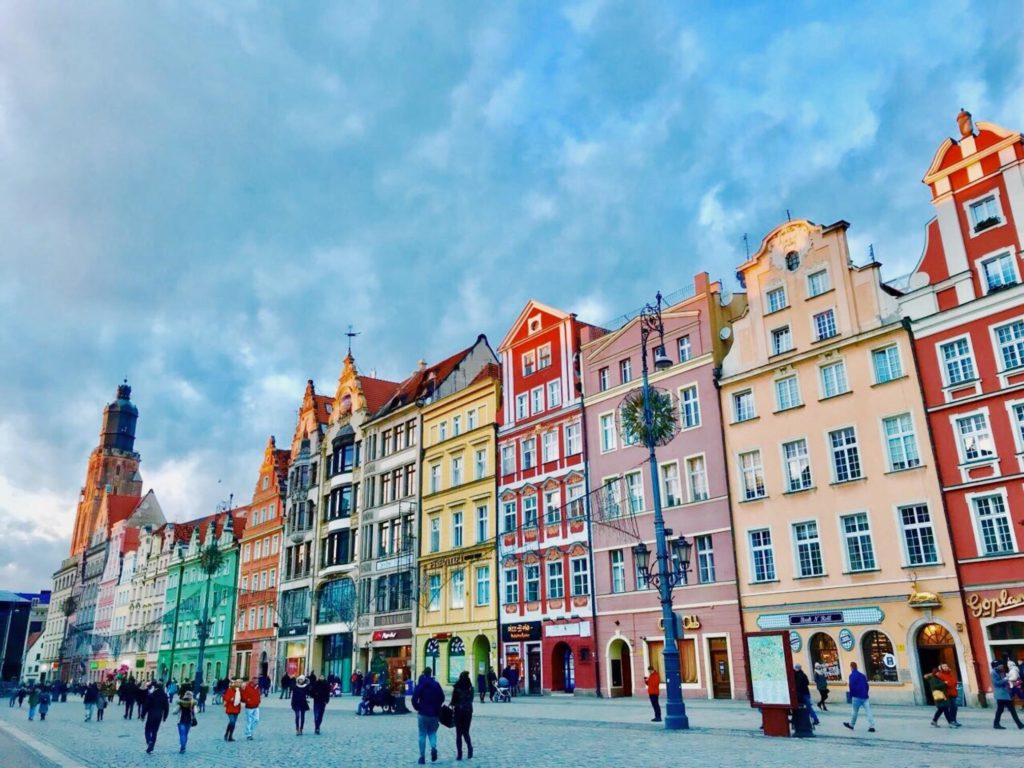The Republic of Poland is a sovereign country located in Central Europe, administratively divided into 16 provinces, and with a cover area of 312,700 sq. km. The country has a rich history and culture, which is unique, attractive, and appears in all forms of Polish society; architecture, cuisine, apparel, and festivals.
As an aspirant immigrant, Poland is among the top few places in the bucket; however, to move to a new country, one must be aware of the benefits and drawbacks of living there.

Immigration requirements
Poland is a member of the European Union and maintains very lenient travel and work policies for EU citizens. Third-country citizens can avail multiple options to stay and work in Poland. One such way is to secure a job with a Polish employer. Vacant positions are advertised online and in local newspapers, one can also contact the local placement agents for available relevant positions.
The employer has to apply for a work permit through the Voivod office where the company is registered. The said office will assess the documents, and ensure that the job filled by a foreign citizen couldn’t have been offered to a local person or an EU citizen.
The essential documents are listed below:
- Duly filled application form
- Passport-sized photographs (not older than 3 months)
- Passport (original)
- Copy of all pages of the passport
- Employment contract (complete details; remuneration, holidays, benefits, terms & conditions, validity, duration, etc.)
- Affidavit from the employer stating that the particular position could not be filled by an EU or Polish citizen
- Payment, stamp duty, fee challans
Other methods to move to Poland can be on the basis of a student visa, marry a Polish citizen, or reuniting with Polish family members.
Travel Visa
In 2007, Poland became signed the Schengen Agreement and became part of the one-visa travel zone. To visit Poland, a third-country citizen must obtain a valid travel visa; note that the travel visa is not a substitute for a work permit, and the holder cannot engage in any form of employment or financial activity.
There are two types of visit visas offered to foreigners. First is the Schengen visa which is valid up to 90 days after the first entry. The other is the D-type visa, which is offered for the long term and valid for one year. Usually, the D-type visa is only issued where there is a strong reason for the applicant to stay in the country for a period beyond 90 days; education, medical treatment, family reunion, etc.
Salaries and business opportunities
Salaries in Poland are lower as compared to the other EU States; however, the salaries match the cost of living to a large extent. Being at the heart of Europe, Poland has trade routes with Germany, Czechia, Slovakia, Ukraine, Belarus, and Russia by land, and by sea, the country has established trades as far as China, India, Australia, and many other countries.
In short, Poland is a bustling country from a business perspective. Availability of resources for large-scale manufacturing, as well as trading of commodities and luxuries, are commonplace. The Gross Domestic Product (GDP) of the country was recorded at a whopping US$ 595B in 2020!
Lastly, the tax applied on Polish taxpayers is relatively higher than other EU countries, making upwards of 30% of GDP in taxes.
Healthcare system
The Polish state provides free healthcare benefits, regardless of the cost, to all its citizens. The program is funded by the public as part of its tax system. The citizens are enrolled in the system by their employers or dependents who pay their dues to the national health insurance.
Foreigners who are employed, or part of the national health insurance program reap the same benefits; however, foreigners and citizens who are not included in the program bear a high cost of medical assistance. Outpatient visits, as well as hospital stays, are among the most expensive in Europe, and so are medicines and other related paraphernalia. Probably, the state has designed the system in a way that discourages private medical care and encourages more people to opt for the national health program.
Transportation
Poland receives thousands of travelers round the year, and as a basic necessity, the state has provided a very well laid out and developed transportation system. The transportation system consists of trams, buses, subways, and trolleybuses; fares for each mode vary on distance, location, and time of the year.
The fares are cheap and more efficient than riding a personal vehicle, as fuel prices keep climbing and a journey may cost a lot more than public transport.
Education in Poland
Primary education in Poland is compulsory for all the residents, whether citizens or expats. High school though optional is very well designed and available to all. It prepares the students for the practical world and offers international standards and learning facilities.
Moving to Poland with kids is beneficial as they will have the opportunity to socialize with a different culture, learn a foreign language, and have more scope for personal and financial growth.
Amazing things about Poland
It is safe to say that Poland is a cultural hub of central Europe rooting as far back as the Middle Ages. The culture is rich and vibrant with tons of colorful festivals and rituals. Polish people are polite and warm and rightfully take pride in their cuisine, culture, landscape, and history.
Polish vodka is a reason strong enough to travel to the country, but Polish cuisine offers a lot more. From an assortment of cheese sausages (Kielbasa) to authentic traditional dishes such as Pierogi, Poland is a food adventure that attracts tourists from around the world.
Poland is also famous for its contributions to the field of science and arts. People like Henryk Sienkiewicz, Daniel Schultz, and Fredrick Chopin gained global fame and their work is treated as classic. On the other hand, winning Nobel prizes in the fields of science, research, medicine, politics, economy, etc.


